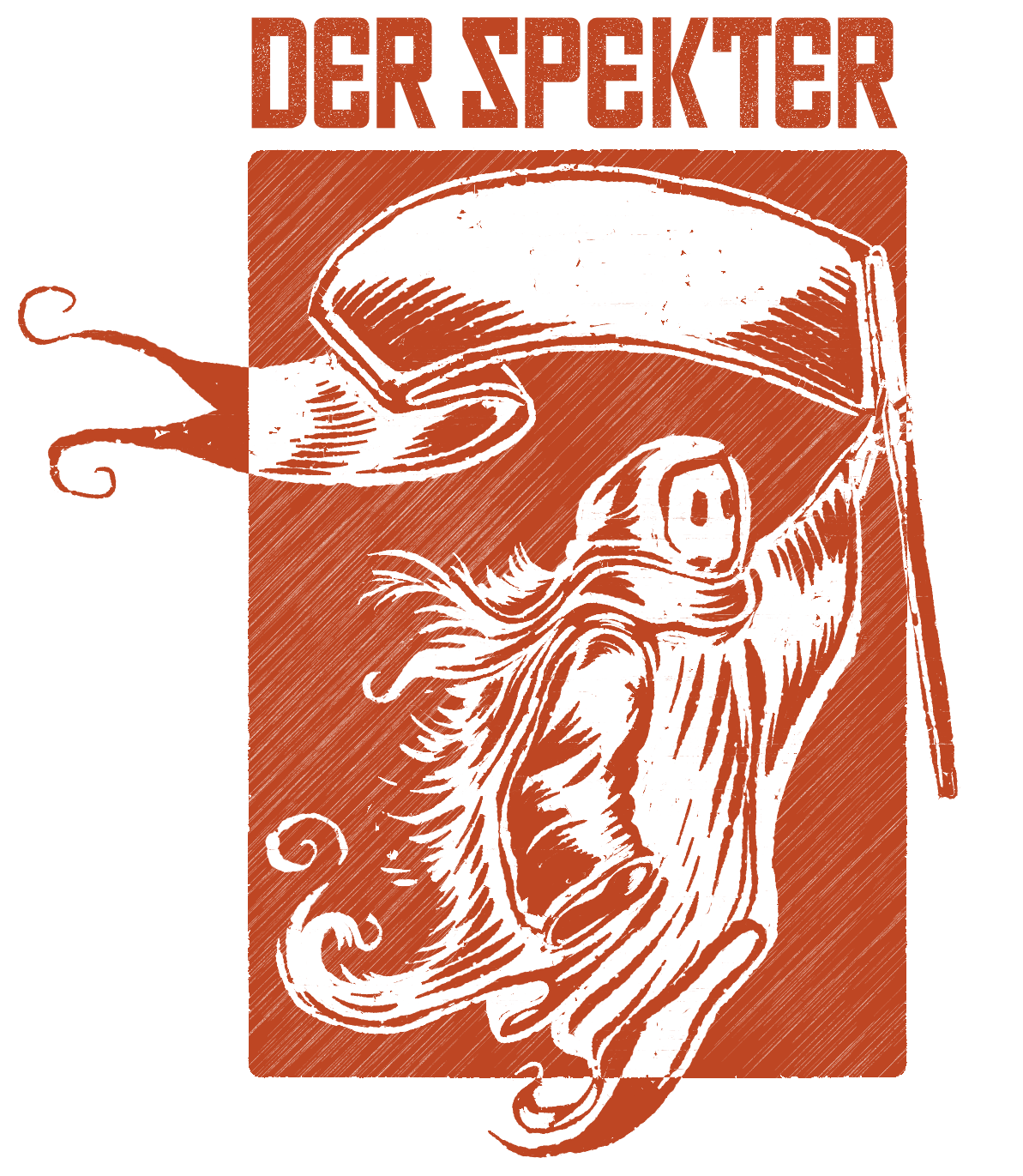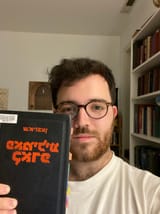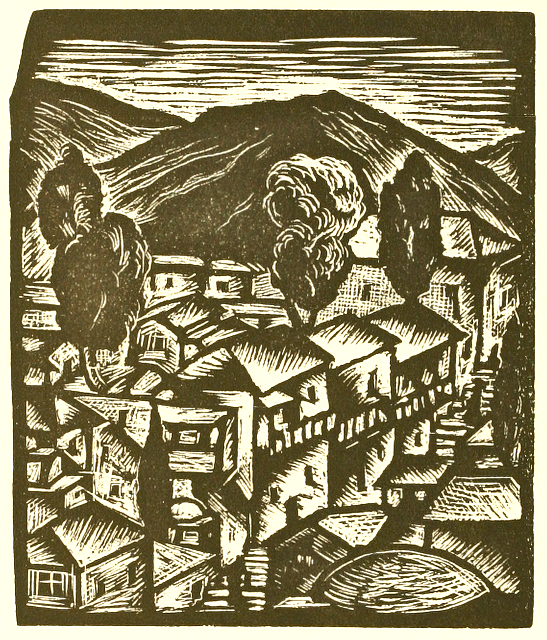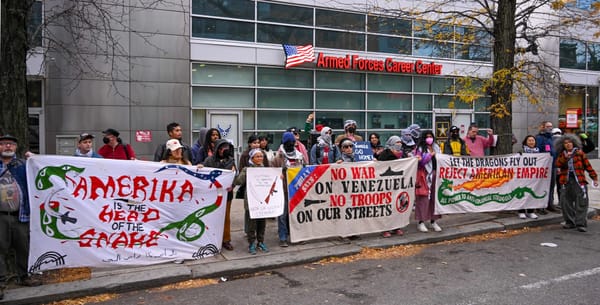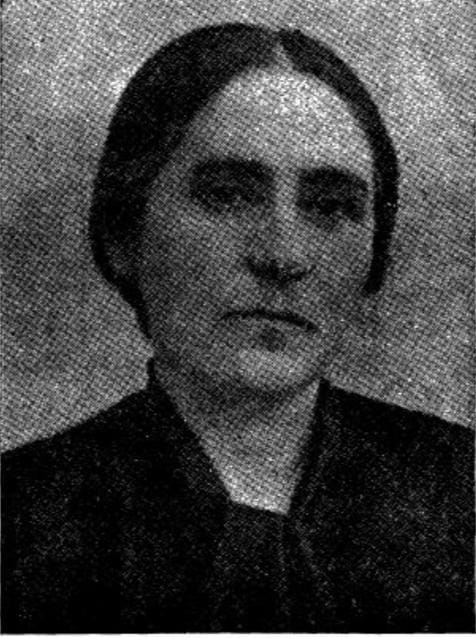Letters on Zionism, Part 1: The Two Worlds of Socialism and Zionism
You see the world as a Zionist, by which I mean you see the world with eyes full of darkness. You are not seeing the world as it is. Try to look at the world with socialist eyes and see.
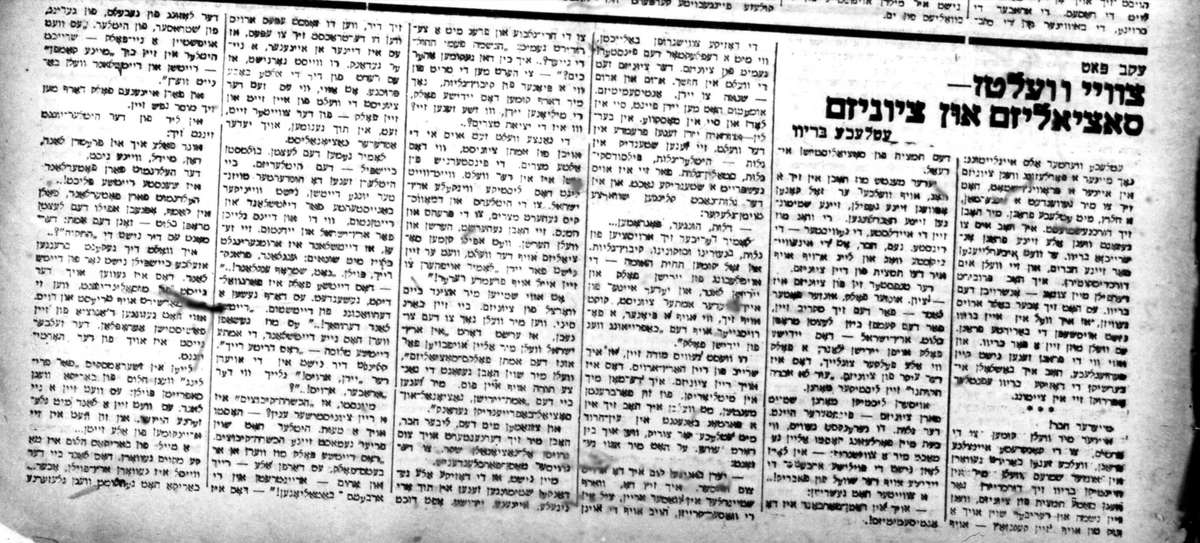
Jacob (Yankev) Pat (1890-1966) was a prominent Bundist leader, author, and Yiddish cultural activist. Starting in the 1920s, Pat served on the Central Committee of the General Jewish Labor Bund of Lithuania, Poland, and Russia, as well as representing the “Bund” on the Warsaw Jewish Community Council. Pat likewise taught and helped administrate Yiddish secular schools in Poland; work he saw as intimiately connected with the goals of "the Bund.” Pat, residing in Warsaw but traveling often as a correspondent for the Bundist Folkstsaytung, was visiting New York City in 1938 and remained there as the Second World War began, saving him from the Nazi genocide. His position on the Jewish Labor Committee in New York in 1941 allowed him to also help save others. Pat was a regular and outspoken writer, particularly in the Folkstsaytung and his many books both before and after the Second World War.
The letter below, the first in a series, was Pat’s attempt at elucidating his ideological criticisms of Zionism and praise for socialism. Published in the Folkstsaytung, the letter claims to be addressing a young Zionist pioneer, a Halutz, that Pat met somewhere in the Polish provinces. He addresses the letter to this young Zionist, “Dear comrade,” or “Dear friend,” and attempts to dissuade him of his Zionist beliefs, and to instead adopt the position of socialism and "the Bund.”
The Folkstsaytung was one of the most widely read Yiddish newspapers in Interwar Poland, and the editorial board saw its audience as the Yiddish-speaking, Jewish working class. These letters represent just one of hundreds of articles in the Folkstsaytung that criticize Zionism and Zionist political activities in Poland of the time and attempt to persuade Jewish workers to reject its basic claims of national exclusion and chauvinism. These letters are among the best of this genre, and shed light for an English-speaking audience on the intense and unyielding anti-Zionist criticism that filled the pages of the Folkstsaytung until the first days of the Second World War. Most notably, Pat is writing in a time where nationalist and fascist political forces were gaining strength throughout Europe, and Pat sees Zionism, whether ostensibly left-wing or right-wing, as the Jewish manifestation of these forces. For this reason, Pat compares Zionist slogans to Nazi Germany, a comparison that may be provocative to readers today, but was nonetheless a common socialist criticism of Zionism a century ago.
Introduced and translated by Eyshe Beirich.
The Two Worlds of Socialism and Zionism (June 30, 1933)
Following one of my talks about Zionism in a town in the provinces, a young man approached me. He was a Zionist pioneer, a Halutz, and he came to ask me several questions. We talked for quite some time. I promised him that I would answer all his questions in letters. I told him to take them and read them aloud to his friends and discuss it with them. However, as I sat down to fulfill my promise, I realized that I would not be able to touch on all his questions in just one letter. There would need to be several. And seeing as there is nothing too personal about them, I decided to send these letters to be published in a newspaper.
My dear comrade, the Halutz,
Before we get to concrete details and specific questions that we mentioned in our conversation, I would like to instead talk to you about the very essence of Zionism, its spirit, as well as its antithesis, that is, the essence of the socialist ideal.
Every human being should have a scale upon which he can weigh his feelings, his moods, and his behaviors. The scale should be as refined, accurate, and sensitive as possible. My friend, take your innermost scale and weight on it your Zionism.
The core belief of Zionism is a belief in Zion. A belief in sacrificing oneself for our nation, our “people,” our fatherland, to struggle until the last drop of blood for the Land of Israel; you believe in the Jewish people living in their own Jewish land, to be a national people like all other peoples. This is the crux of Zionism. In your words, Od lo avdah tikvatenu, that is your bright future.
However, an obstacle lies between us and Zionism’s bright future, and that is our dark present. Our exile. You undoubtedly remember how, during my talk, you interrupted me with an outburst about how Polish workers in Łódź are blocking their Jewish coworkers from entering their factory. A second person heckled after you, “Well, what about the antisemitism in the Soviet Union, huh?”
Your outbursts reflect only the darker side of Zionism. Zionism sees the world in eternal darkness, so to speak. Everywhere you look, there are enemies of Jews. There is antisemitism. Everyone hates Jews, whether in Lodz or in Moscow. For you, what’s happening in Berlin is only more proof that Jews are strangers in this world. We are eternally in exile, whether that be Hitler’s exile, Piłsudski’s exile, or Stalin’s. An unending night is expanding over the world, a night of exile, resounding with the sinister tolling of the bells of death. Poverty, hunger, and pogroms.
So, you say, let us then emerge from our exile, both young and old, and “gather Israel.” The rebirth of the Jewish people in our Jewish nation is at hand! Every single one of you, every single true Zionist, looks at himself like a pioneer, a trailblazer on the “path of liberation for the Jewish people.”
I know my writing may appear as if I can read the contents of your heart. This is indeed your Zionism. I am reminded here of the young, sun-burnt people that I met one morning in Ein Harod when I was there a few years ago. One of them spoke to me in the following words:
“Every dawn, I come to the water. I sit here, and I throw stones into the water and watch the ripples. I lift my eyes to the Mountains of Gilboa and ask myself, upset: ‘Do you hear the steps of the pioneers coming from our exile? The Jewish people is supposed to be following me. Millions of them. Where are they? When will we leave Egypt?”
Indeed, to a Zionist, the entire world looks like ancient Egypt. For them, a smoky darkness is filling the world. Far away, however, the Land of Israel is waiting in a lighted corner. Egypt belongs to the Hitlers and the Dmowskis, to the Pharaohs and the Hamans. They have always ruled, they continue to rule, and they will always rule. Even if socialism comes to the world, it won’t be for Jews. “Let us cease being oil on the wheels of strangers!”
This is what lies at the root of Zionism, this is Zionism’s Mount Sinai. You can understand Zionism on one foot if you add only one idea, namely, that only in the “Land of Israel” will we “build for ourselves a true nationalist socialism.” “We,” the Zionists say, “are the purveyors of the true liberating national and socialist thought of the Jewish people.”
With this, dear friend, we come closer to discovering the big, nationalist secret, by which I mean the illusion of the masses.
Do not think that your Zionist political positions are originally Jewish. Often, if you consider something long enough, or you express something to yourself, you begin to believe it to be your own creation or some new form of thought. This is nonsense; dusty and decomposed ideas are instead speaking through you. In this way, just as the Zionist sees the world in one light, his countrymen see him as not much more than just another nationalist.
Let’s consider the latest, clearest manifestation of nationalism—Hitlerism. Hundreds of thousands of young Germans are enthusiastic for Hitler, for Germany, and for Germanness, just as you and your friends are for the Land of Israel and Jewishness. They believe their Germany to be surrounded by its enemies: England, France, and Poland. “God, punish England!” they cry. Their Germany has been pillaged and violated. Germans must awaken— “Deutschland, erwache!” A new Germany must be created, a pure Germany, an authentic German kingdom, their “drittes Reich.” Ask yourself, is “Arabs out” not the very same slogan as “Juden raus”?
Do you earnestly believe that your Hakhshara, your Zionist training camps, are only a matter for the Zionists? You would be mistaken. Hitler has already been making his own Hakhshara. “The German people must become a working people, all of us—rich or poor—must enter into the work battalions!” This is Goebbels’ slogan, Göring’s and Strasser’s, even Hitler’s. In Mein Kampf, Hitler writes, “A new people will rise, Germans and Germany will be renewed.” Everyone should give their lives for their nation, he says.
A popular song among the Hitler Youth goes as such:
And if I should die in a foreign land, / Then, dearest, don’t cry, / Our most beautiful German duty, / is our bravery for the Fatherland…
Bravery for the “Fatherland,” dying in battle, fighting even to the last drop of blood, be honest with me, does it not remind you of the Hatikvah?
I could regale you with examples not just in Germany. This was the spirit of the Mussolini youth as they marched on Trieste and Rome. These were the songs sung by Gabriele D’Annuzio from his fascist airplane. This is the same spirit of the Horthy youth in Hungary.
Read in Żeromski’s The Spring to Come about Cezary Baryka’s dream of liberating Poland. Poland was to be a new country, a country of glass homes where the sun penetrates on all sides. Part of Baryka’s dream has in fact come true. The land of the Vistula became the land of Poland. However, Baryka dreamed of glass homes, and we are stuck with cellars. He meant freedom, and we are in chains.
Yes, today we are all in chains, enslaved to an international capitalism. Socialism, however, will be our freedom. But let us not get lost in the weeds, there will be time to speak of socialism.
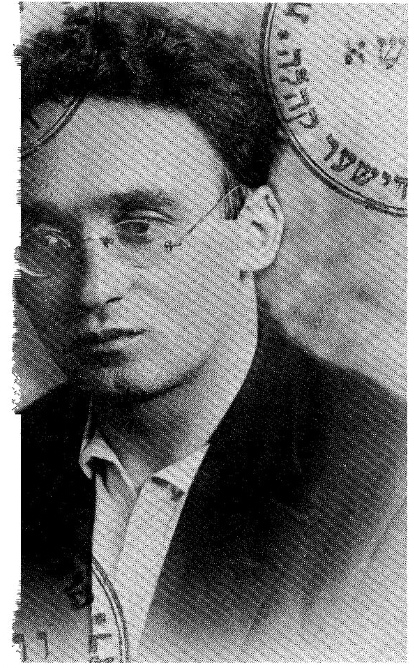
I will return us to the beginning: you see the world as a Zionist, by which I mean you see the world with eyes full of darkness. You are not seeing the world as it is. Try to look at the world with socialist eyes and see.
Socialism draws its power from two main sources. One source is the natural force of all economic and political processes that are pushing the world to the shore of socialism with great energy, like the waves of an ocean. As a socialist puts his heart and head to the world, he sees a powerful storm of historical energy. Gradually, the waves awaken in the sea, crashing into each other with their white, jagged manes, carrying each other to the shore of socialism. This is the Marxist view of history.
The second source of socialism is in our view of the future, in our deep consciousness of our tomorrow. The shore of the new world entices us and calls to us, our ships carry us to him on the sails of our hope. Our view of the world is full of sun. Humanity is growing nearer to its fortune. Black or white, brown or yellow, all races, all people of the world—awakening!
Our hearts shudder with joy when we think of the tomorrow, in our socialist tomorrow—the tomorrow of a classless society.
Dear comrade, there are so many good things in this world. Man is good. We need only destroy the source of what is bad in the world: the capitalist world order. We seek to tear down the bells that have for generations tolled in the human heart the sound of hatred, falsehood, and fraud. We seek to expel the capitalist demon, persecute hunger, and give bread to all who need it, because the world is good, and man is good.
Remove the borders between kingdoms, the separations between people, the world that stands between person and person—do you not hear the sound of morning bells in these words? Do you not see a great prophecy and a wonderful vision?
At my talk, one of your friends attempted to hit me with a line about the Soviet Union: “There is antisemitism there, too!”
It is entirely possible. Not just possible, it is certain. Hundreds of years of Orthodoxy, expansionist Russian nationalism and imperialism have done their part. It is not easy to clean out centuries of dirt even with an iron broom. Your own nationalism, which is itself the growth of hundreds of generations, do you truly believe it to be better and more beautiful than the nationalism of a young German or a Pole?
It takes time to expel nationalism from the hidden corners of darkened hearts and darkened minds, and this is certainly the case with many people in Russia. But even in the Soviet Union, we have come far from the times of the Black Hundreds that ruled under the Czar! There is much work to be done on the road from Kishinev to Birobidzhan, or from the Gomel pogrom to the fields of Crimea.
We socialists do not agree on everything. We fight, mostly over questions of tactics, or the proper way forward to socialism, but these are mostly arguments among ourselves. On Zionism, however, there is no disagreement.
Dear comrade! You told me of the accomplishments of the Zionist training camps in Poland, citing the solidarity among its members, their idealism, and whatever else. You asked me, “What could you show me in contrast, what exactly is the Bund accomplishing?” Of course, you remember asking.
I will tell you. Just today I received a letter from Białystok. A comrade wrote to tell me about how Białystok textile workers, after a heroic strike of five-thousand strong including two-thousand Jews, have just returned to work. Now, they are already planning another strike!
The factory owners wanted to steal every crumb of bread from the mouth of their workers. In solidarity, the workers of Białystok striked for 15 weeks. Jewish, Polish, and German workers together. The owners’ brutal retaliation was not successful, and they were forced to concede to the strikers. One of the owners, however, a wealthy and Zionist Jew by the name Citron, was stubborn. He refused to concede. After the workers returned to work, he announced to them that their deal with the other factory owners did not apply since he has just left their manufacturer organization. He told them he will not give up; he will fight it to the end. He will continue to take a couple złoty a month from his workers who already only earn twenty a week.
What did the workers do in response? They striked for another 15 weeks. What did the other workers do? They dipped into their own wages, the same wages they were receiving for the first time after fifteen weeks of hunger and donated them to their striking brothers.
And what did the Bundists in Białystok do? They, together with Polish and German comrades, called new meetings to announce a general strike to help Citron’s striking workers. The sheet makers met just last Tuesday. Spinning mill workers are meeting next Wednesday. On Thursday, a general meeting of all textile proletariat in the entire city!
This is what my comrade in Białystok has written to tell me. I would like to now ask you; how do your training camps look? The same kibbutzim which, in the name of their “Fatherland” and their “Zion,” raise prices, denigrate workers, and humbly serve the very same portly, engorged, and greedy capitalist proprietors like Mr. Citron? Compare this to the humility of our proletariat brothers, the Bundists, the socialists, the revolutionaries of Białystok!
Your national ideal sees your Zion, your Fatherland, your Jewish nation encircled by a world of inevitable darkness. Our comrades in Bialystok, just like their millions of brothers throughout the world, have in their minds instead an international ideal of socialism, a world of liberated labor, and a state of the proletariat.
The forces of fascism and nationalism are now conjuring evil storms in the world. They are crying, “Howl, howl raging winds!” But these winds will not rage for long. The locomotive of history is running on its track with fiery eyes into the future.
My dearest comrade, now you see two worlds with their two spirits. Zionism and socialism. They are not to be united just as one cannot unite darkness with light. Two locomotives driving in opposite directions.
My first letter has now come to a close, and yet I have only touched on one question: the question of the spirit of Zionism. In my next letter, I will speak on revisionism and Zionism.
Eyshe Beirich is a Yiddish scholar, translator, and teacher living in New York City. He is a PhD student in Yiddish and German literature, and his writing in Yiddish and English has appeared in Jewish Currents, In geveb: a Journal for Yiddish Studies, the Yiddish Forverts, Yiddish Branzhe, Afn Shvel, among others.
